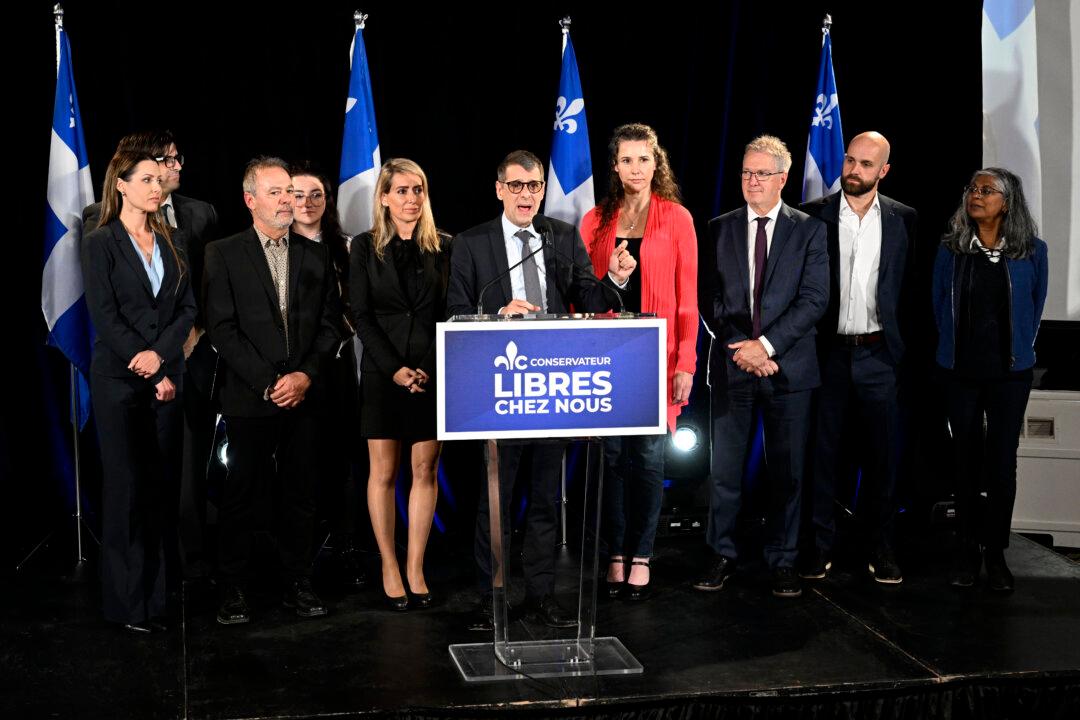Quebec’s Conservative Party (PCQ) came within a few hundred votes of winning ridings on the Oct. 3 election but failed to elect any candidates, so for now it will be observing the next four years of provincial politics from outside the National Assembly.
Nevertheless, PCQ Leader Éric Duhaime struck an optimistic note with his supporters assembled in the Quebec City area.





